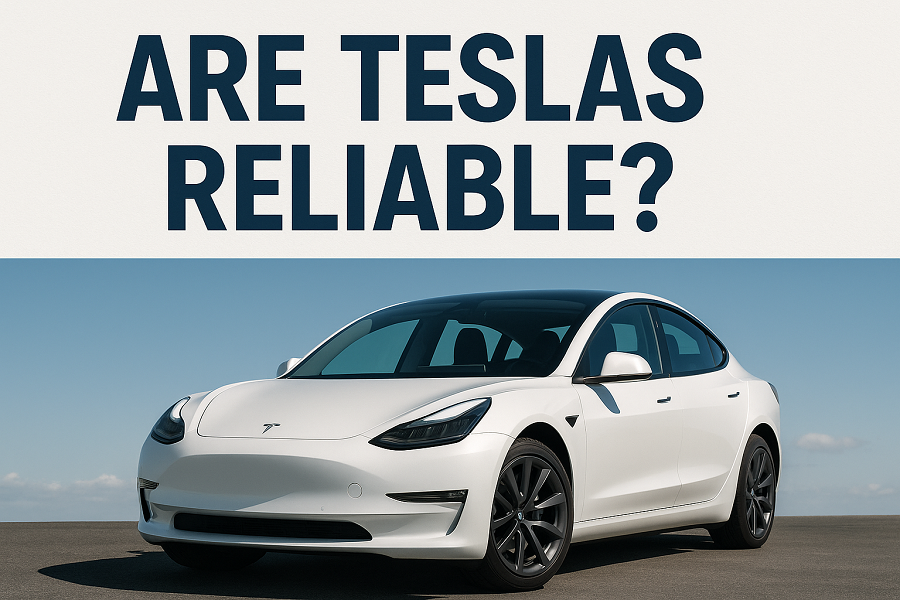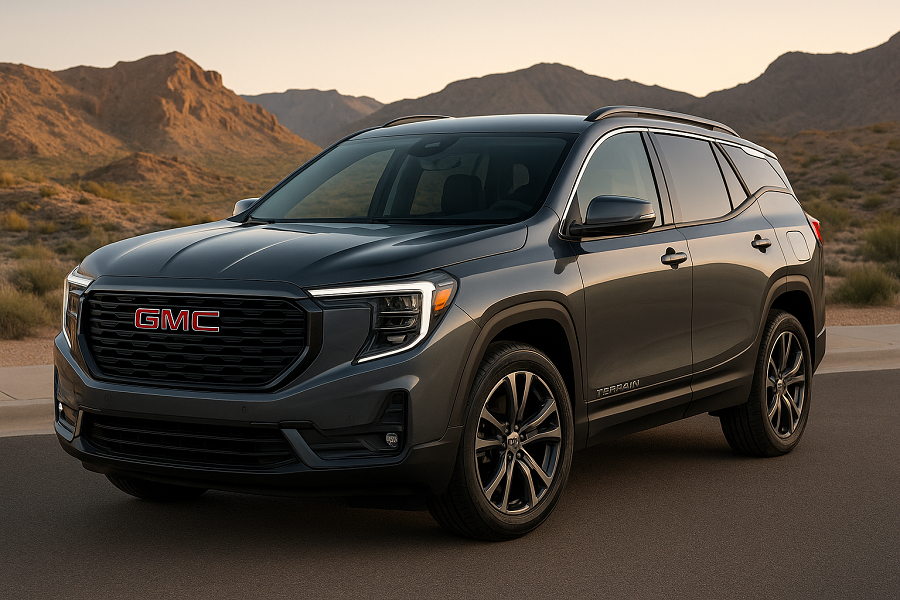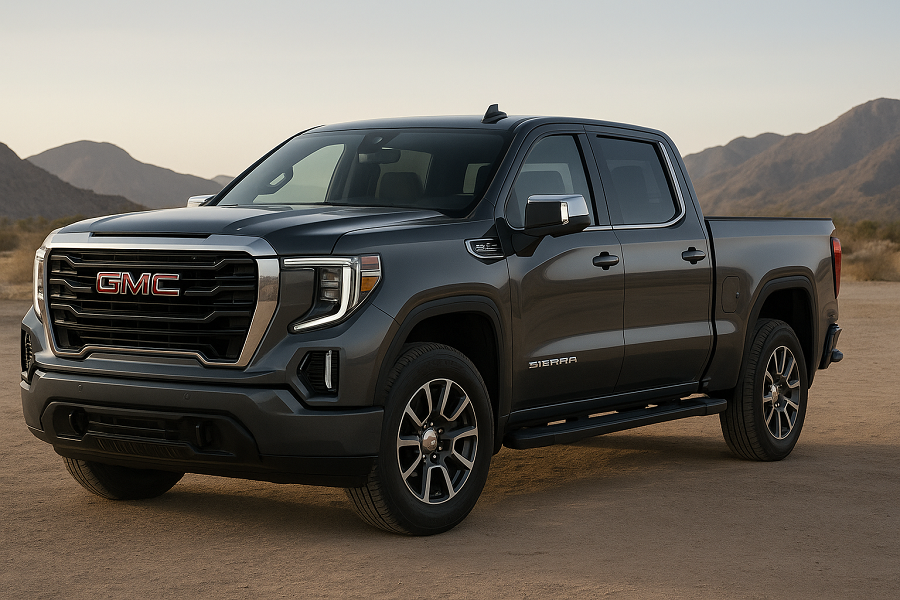Introduction
Tesla has transformed the auto industry with its electric cars, futuristic features, and bold innovation. But as more people consider buying one, an important question keeps popping up: Are Teslas reliable? In 2025, reliability matters more than ever—especially with rising EV adoption, repair costs, and long-term ownership concerns. Whether you’re thinking about a Tesla Model 3 or exploring the Cybertruck, understanding Tesla’s dependability is key to making a smart decision.
What Does “Reliability” Mean for Electric Cars?
Reliability in electric vehicles (EVs) like Teslas isn’t just about the engine—it’s about the battery, electronics, software, and how well everything works over time. Unlike gas cars, EVs have fewer moving parts, which often means fewer mechanical issues. But software bugs, battery life, and charging problems can affect how reliable an EV feels. Understanding Tesla reliability means looking at more than just breakdowns—it’s about the overall experience, from performance to daily use.
How Reliable Are Teslas Overall?
Tesla’s overall reliability has improved in some areas but still trails behind legacy automakers like Toyota and Honda. Consumer Reports and J.D. Power have ranked Tesla in the middle or lower tier due to recurring issues with build quality and electronic components. That said, many owners report high satisfaction with their vehicles despite minor problems. Tesla’s unique use of over-the-air updates also helps fix software issues quickly, which boosts long-term reliability for some drivers.
Tesla Model Reliability Breakdown
- Model 3: Often seen as the most reliable Tesla. It’s affordable, has fewer issues, and enjoys solid owner reviews. Common concerns include touchscreen glitches and interior rattles.
- Model S: A luxury EV with impressive performance. However, reliability suffers due to complex electronics, aging tech in older models, and repair costs.
- Model X: Known for its falcon-wing doors, but also for problems related to sensors, electronics, and build quality.
- Model Y: Tesla’s newest hit. Early units had panel alignment issues, but newer ones show improved quality. It’s quickly becoming a top choice for families.
- Cybertruck: Fresh on the market in 2025, the Cybertruck raises questions about long-term reliability. It’s too early to say definitively, but first impressions highlight concerns with software and panel fit.
What Tesla Owners Say About Reliability
Many Tesla owners love their cars despite small flaws. In surveys, Tesla scores high for owner satisfaction but lower for reliability. Most complaints relate to paint quality, alignment, and touchscreen performance—not powertrain failure. Some Model 3 and Model Y owners have reported driving over 100,000 miles with minimal issues. The takeaway? Tesla reliability is more about the little things than major breakdowns.
Most Common Tesla Problems
While Teslas are generally dependable, they’re not problem-free. Here are some of the most frequent issues:
- Touchscreen failures or freezing during use
- Panel gaps and inconsistent paint jobs
- Sensor malfunctions affecting Autopilot features
- Battery degradation over time (though usually gradual)
- Interior squeaks and rattles, especially in early builds
These problems don’t always affect performance, but they can impact the ownership experience and long-term satisfaction.
Tesla Repairs and Maintenance Costs
Tesla vehicles don’t need oil changes or timing belts, which reduces basic maintenance. However, when something breaks, repairs can be costly. Parts are often proprietary, and not all repair shops are certified to work on Teslas.
- Brake pads last longer thanks to regenerative braking
- Tire wear can be faster due to heavy battery packs
- Electronics or screen replacements can be pricey
On average, Tesla maintenance costs are lower than gas cars, but repair costs can spike for out-of-warranty issues.

How Tesla’s Software Affects Reliability
Tesla’s over-the-air (OTA) software updates are a game changer. They allow Tesla to fix bugs, improve features, and even boost range—without a visit to the service center. However, not all updates go smoothly.
Sometimes, new updates introduce glitches or change how features work (like Autopilot sensitivity or battery range). While Tesla leads the industry in software innovation, it also means your car’s reliability can depend on the next update.
Warranty, Service Network & Resale Value
Tesla offers generous warranties:
- Battery & drivetrain: 8 years / 100,000–150,000 miles (depending on model)
- Basic warranty: 4 years / 50,000 miles
Tesla’s service center network is still growing, which can make scheduling repairs difficult in some regions. However, Teslas tend to hold their value well, especially the Model 3 and Model Y, due to high demand and low inventory in the used EV market.
Comparing Tesla Reliability to Other Brands
When compared to Toyota or Honda, Tesla falls short in consistency. However, Tesla outperforms some newer EV brands like Lucid and Rivian in service infrastructure and resale value. In terms of EV reliability:
- Hyundai Ioniq 5 and Kia EV6 are praised for consistency
- Tesla shines in innovation, updates, and range—but not build quality
Tesla is still evolving, while competitors are catching up fast with better reliability scores.
Climate, Driving Conditions & Tesla Longevity
Cold weather can reduce Tesla’s range and affect charging times. High heat can accelerate battery wear. That said, with good care, Teslas can easily last over 200,000 miles.
Tips to extend longevity:
- Charge to 80–90% for daily use
- Avoid deep discharges below 10%
- Park in shade or garages during extreme heat
With proper care, Teslas can deliver long-term reliability comparable to top-tier gas vehicles.
Final Verdict: Are Teslas Reliable in 2025?
So, are Teslas reliable? Yes—mostly. While they’re not perfect, Teslas offer reliable performance, fewer mechanical problems than gas cars, and evolving software updates. But buyers should be ready for occasional electronic quirks, service delays, or cosmetic issues.


